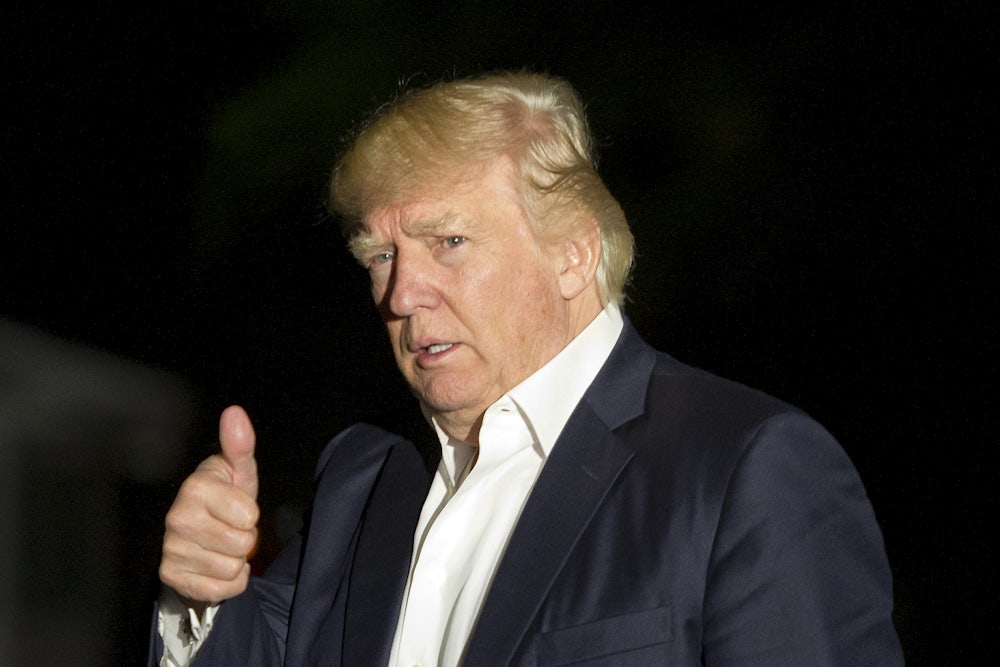The Trump administration’s official rationale for firing James Comey—that they did so because of his handling of the investigation into Hillary Clinton’s emails—took less than a day to break down completely. It was clear almost immediately that the FBI director was fired because he was leading the investigation into the Trump campaign’s ties to Russia and by Wednesday, the Trump administration was openly admitting as much.
In an interview with Lester Holt that aired on Thursday evening, Trump said that Comey was let go because he was sick and tired of the Russia investigation. “I was going to fire regardless of [the] recommendation” from Attorney General Jeff Sessions and Deputy Attorney General Rod Rosenstein, Trump said. “And in fact when I decided to just do it, I said to myself, I said you know, this Russia thing with Trump and Russia is a made up story, it’s an excuse by the Democrats for having lost an election that they should have won. And the reason they should have won it is the Electoral College is almost impossible for a Republican to win. Very hard. Because you start off at such a disadvantage. So everybody was thinking, they should have won the election. This was an excuse for having lost an election.”
Trump calls Russia probe “made-up story” and excuse by Democrats for why they lost election https://t.co/ShNM9F2DB9 https://t.co/UwUxzgeXdx
— CNN (@CNN) May 12, 2017
On Thursday evening, around the same time as the Holt interview, The New York Times reported that Trump demanded that Comey pledge his loyalty to him. Comey tried to wriggle out of this trap, instead pledging “honest loyalty.”
It’s hard to overstate just how bad this situation is and how responsible Trump is for continuing to make it worse with each passing day. On Friday morning, he essentially decided to threaten to blackmail Comey.
James Comey better hope that there are no "tapes" of our conversations before he starts leaking to the press!
— Donald J. Trump (@realDonaldTrump) May 12, 2017
The implication here seems to be that Trump is wiretapping himself—a la Nixon’s infamous tape system—and that, if Comey spills the beans, Trump will hit him with the tapes. (Trump is probably bluffing, but honestly who knows anymore.)
Timothy O’Brien, who knows Trump as well as anyone, wrote on Thursday that observers shouldn’t strain to hard to identify the hidden strategy behind Trump’s seemingly irrational acts. “What drives Trump today, and what has always driven him, are twin forces: self-aggrandizement and self-preservation. Most of his public actions can be understood as a reflection of one or both of those needs,” O’Brien argues. “And Donald Trump firing James Comey was all about self-preservation.”
I think this is right. But since Comey was fired, his instinct for self-preservation has only made things worse. It’s not enough for him to have fired Comey, he has to make it abundantly clear that he did it because the Russia story is “fake news.” In doing so, he has sown the seeds for his own destruction by repeatedly and openly arguing against the FBI’s independence. In this sense, his instinct for self-preservation is conflicting with his instinct for self-aggrandizement—Trump can’t help but shout at Lester Holt that this is all because the Democrats can’t handle what a big winner he is. The result is something akin to crossed wires, and now Trump is short-circuiting.
